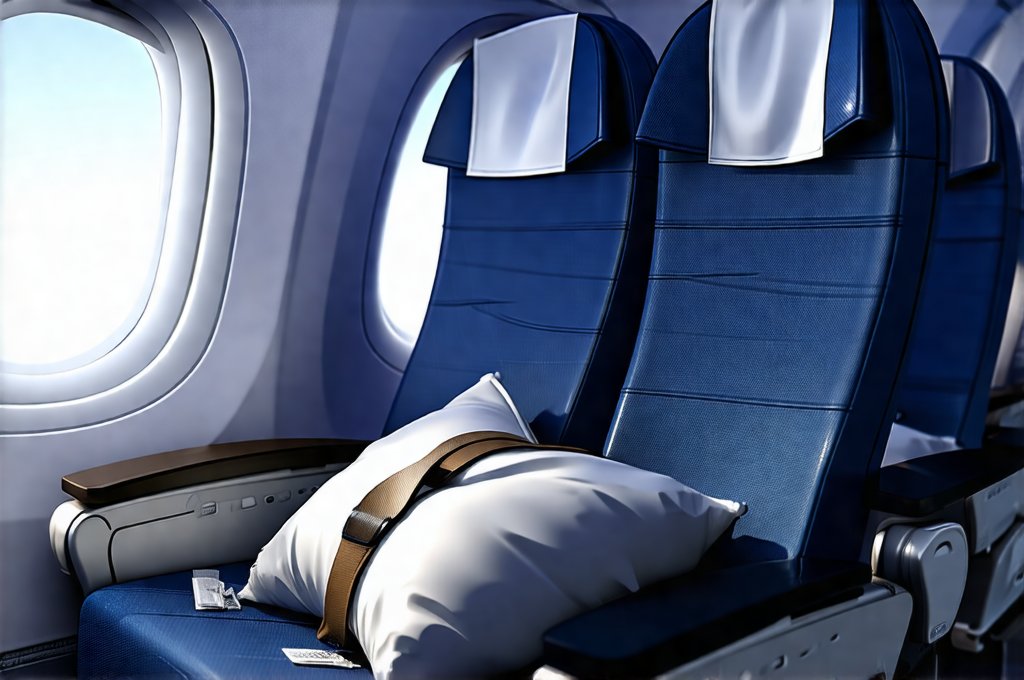Airplane travel, while often exhilarating and convenient, can sometimes leave us feeling…off. Beyond jet lag and fatigue, many people report experiencing temporary bloating after flying. It’s a common complaint that prompts questions: Is it just the perception of discomfort due to travel stress, or are there genuine physiological reasons why our bodies feel puffier when we land? Understanding this phenomenon requires looking at the unique environment within an airplane cabin – the altered air pressure, decreased humidity, and relative inactivity – and how these factors can interact with our digestive systems. The sensation of bloating isn’t always severe, but it’s enough to diminish travel enjoyment for some individuals, leading them to seek ways to mitigate or understand its causes.
This article will delve into the potential reasons behind airplane-induced bloating, separating fact from fiction and offering practical insights based on current understanding. We’ll explore how altitude and cabin pressure affect our bodies, examine the role of gas production and digestive changes during flight, and discuss strategies you can employ to minimize discomfort before, during, and after your journey. It is important to note that individual experiences vary greatly, and what affects one person may not affect another; this exploration aims to provide a comprehensive overview of the possible contributing factors.
The Physics of Flight & Your Body
The airplane cabin environment is vastly different from what our bodies are accustomed to on the ground. Primarily, it’s about air pressure. While airplanes maintain pressurized cabins to allow us to breathe comfortably at high altitudes, that pressure isn’t equivalent to sea level. Typically, cabin pressure is maintained around 6000-8000 feet above sea level. This lower atmospheric pressure can have several effects on the human body, even during relatively short flights. One significant impact relates to gas expansion. According to Boyle’s Law, as altitude increases (and thus pressure decreases), gases expand. This means that any gas present in your digestive system – whether from food, swallowing air, or normal metabolic processes – has more room to expand, potentially leading to bloating and discomfort.
Furthermore, the humidity inside an airplane cabin is extremely low, often around 10-20%. Low humidity can dehydrate you quickly, as moisture is drawn from your body into the dry cabin air. Dehydration can, in turn, slow down digestion, contributing to constipation and bloating. When food sits in your digestive tract for longer periods, it allows more time for gas production through bacterial fermentation. This creates a double whammy: expanded gases and increased gas production. The combination of lower pressure and dehydration creates an environment where bloating is almost encouraged. If you experience discomfort related to this, it’s worth exploring how reflux can cause persistent ear pain or fullness.
Finally, the reduced movement during flight plays a role. Sitting for extended periods can slow down digestive processes, leading to constipation and increased gas build-up. This lack of physical activity impacts peristalsis – the rhythmic contractions that move food through your digestive system. Without adequate peristaltic motion, things get…stuck, literally.
Dietary Considerations Before & During Flight
What you eat before and during a flight can significantly influence your susceptibility to bloating. Certain foods are known to produce more gas than others, and consuming them before or during travel can exacerbate the problem. – Legumes (beans, lentils) – Cruciferous vegetables (broccoli, cauliflower, cabbage) – Carbonated beverages – Artificial sweeteners – particularly sorbitol and mannitol – found in sugar-free gums and candies. – Dairy products (for those lactose intolerant).
Therefore, mindful dietary choices are key. Prior to your flight, consider reducing your intake of these gas-producing foods. Opt for easily digestible options such as plain rice, bananas, applesauce, and toast—often referred to as the BRAT diet. During the flight itself, avoid carbonated drinks and excessive amounts of caffeine or alcohol, which can both contribute to dehydration and digestive upset. Staying hydrated is crucial; sip water consistently throughout your journey. Can GERD be a cause of unexplained fatigue? Dietary changes are often helpful.
A pre-flight meal that’s light and easy on the stomach will set you up for a more comfortable experience. Avoid large, heavy meals right before boarding. Consider packing healthy snacks like nuts (in moderation), dried fruit, or whole-grain crackers to avoid relying solely on airplane food, which can often be high in sodium and processed ingredients. Remember that individual tolerances vary; pay attention to how your body reacts to different foods and adjust accordingly.
Hydration & Movement: Your In-Flight Allies
As previously mentioned, dehydration is a major contributor to airplane bloating. The dry cabin air pulls moisture from your body, slowing down digestion and exacerbating discomfort. To combat this, consistent hydration is paramount. Aim to drink at least 8 ounces of water per hour of flight. While other beverages are available, water is the best choice as it doesn’t contribute to dehydration like caffeinated drinks or alcohol. Carrying a reusable water bottle allows you to refill it after passing through security and stay hydrated throughout your journey. Can reflux cause a lump sensation in the throat? Staying hydrated can help alleviate this.
Beyond hydration, movement is equally important. Get up and walk around the cabin every hour or so. Even short walks help stimulate digestion and prevent constipation. If space permits, do some simple stretches in your seat – ankle rotations, shoulder rolls, and gentle torso twists can all help keep things moving. For longer flights, consider doing seated abdominal exercises (carefully and cautiously) to encourage peristalsis.
Finally, avoid tight-fitting clothing during travel. Loose-fitting garments allow for better circulation and don’t constrict your abdomen, which can worsen bloating. Comfortable clothing contributes significantly to overall comfort and reduces the feeling of being physically restricted. These simple steps—hydration, movement, and comfortable attire—can collectively make a substantial difference in minimizing airplane-induced bloating. Experiencing GERD cause tightness in the neck or throat during travel can be exacerbated by these factors, too.
Addressing Post-Flight Discomfort
Even with proactive measures, some degree of bloating may still occur after landing. This is normal, as your body readjusts to the change in pressure and environment. The key is to help your digestive system return to its normal functioning state. – Continue hydrating even after you land. – Light exercise or a gentle walk can aid digestion. – Avoid heavy meals immediately upon arrival; opt for easily digestible foods.
If bloating persists beyond a day or two, or if it’s accompanied by severe pain, nausea, vomiting, or other concerning symptoms, consult a healthcare professional. It’s important to differentiate between typical post-flight discomfort and something more serious. Over-the-counter remedies like simethicone (Gas-X) may provide temporary relief from gas build-up, but these should be used cautiously and aren’t a substitute for addressing the underlying causes. Can GERD cause pain in the jaw or ears? Don’t hesitate to seek medical advice if needed. It is also important to remember that Can GERD Cause Ringing in the Ears or Hearing Issues.
Ultimately, understanding why airplane travel can cause bloating empowers you to take steps to minimize its impact and enjoy your journey more comfortably. By focusing on hydration, movement, dietary choices, and comfortable clothing, you can significantly reduce the likelihood of experiencing this common travel ailment. Can GERD Cause Tingling in the Arms or Hands is another symptom to be aware of if you suspect a connection between your discomfort and gastrointestinal issues.


















